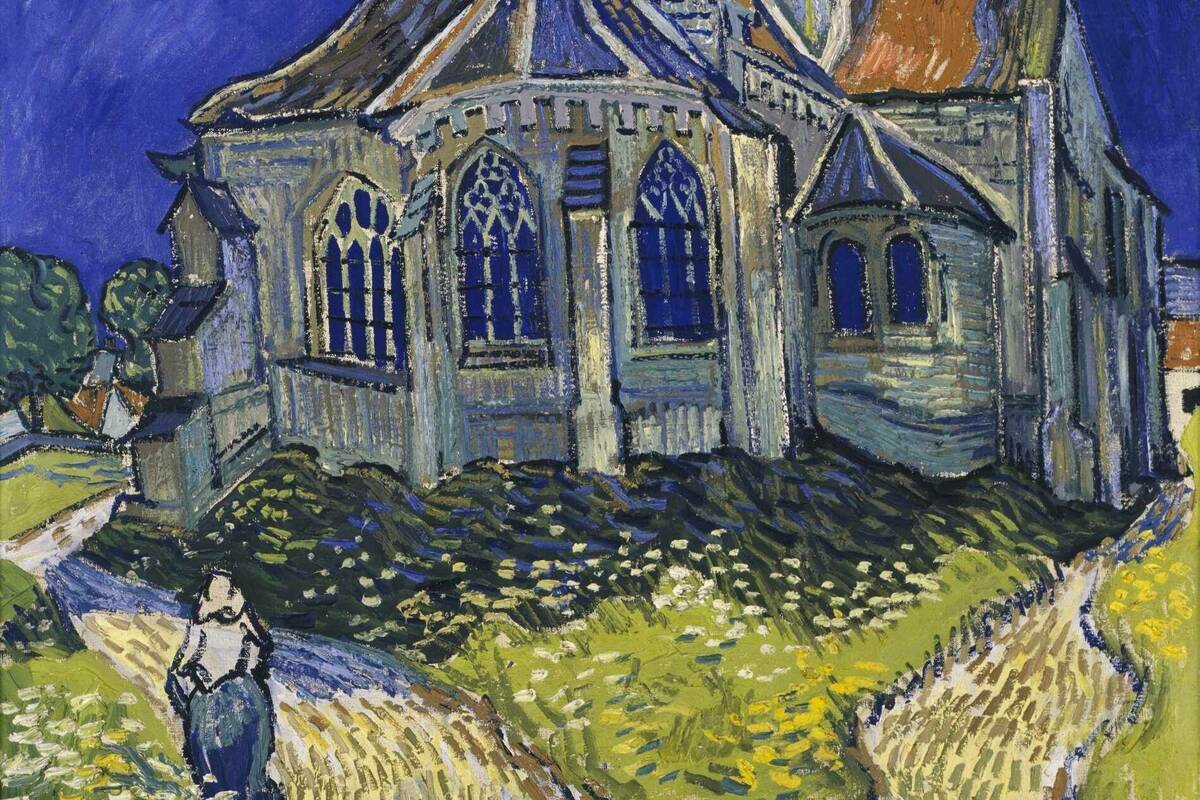
Earlier this year, I participated in my first-ever triathlon. My weakest event was the swim, so I spent a lot of time in the pool leading up to the race. Like many, I learned enough as a child to get by without drowning, but my technique more or less stayed where it was. Now, as a mid-thirties, reasonably active man, I have discovered that swimming is not very intuitive. You see, it is easy to look busy in the pool. In fact, anyone watching from the edge would (correctly) believe me to be working hard. And yet, despite all my efforts, they would be surprised at how little progress I made. As it turns out, good swimmers rely less on strenuous effort, and more on good technique, to cut through the water. They make it look easy, drawing little attention to themselves, whereas I make a big scene without going anywhere.
This image, I would argue, characterizes how parishes and dioceses sometimes approach ministry. You see, it is easy to look busy working for the Church. Stack enough events over the course of the year—from Bible studies to catechetical lecture series, from Lenten fish fries to Advent evenings of recollection—and no one can possibly suggest that we should be doing more. And yet, despite all our efforts, we are surprised that the Church has not made more progress.
Perhaps we have not focused on what matters most, relying more on effort than technique, though this tendency is certainly understandable. After all, there is work to be done! Preparing people to receive the sacraments, helping them grow in their knowledge of the faith, encouraging them to a deeper interior life—somebody has to do it! Those of us who have been in this line of work for a while know, too, that we often do not get to see the fruits of our labor, so we do what we can and then put our faith in God, trusting that he will bring about transformation according to his good pleasure. Indeed, the Lord himself advocates a lavishness—even a carelessness—in sowing seeds of the Word of God, assuring us that they will not return to him empty (cf. Mt 13:3-9; Isa 55:10-11). So, there is a case to be made for just rolling up our sleeves and getting to work.
At the same time, the oft-cited dictum that grace builds on nature invites us to use the gift of reason that we have received from God. In thinking about where the parish (and, by extension, the diocese) ought to direct its efforts, we need to think more strategically about what leads to real change, namely, an emphasis on individual formation. Jesus invested the majority of his time in a handful of close followers, offering them a formation that would endure once they went out into the world and, in turn, be passed along to their followers. This process is slow. Despite the natural sense of urgency that we all feel regarding the state of the Church, we have to acknowledge that it took us decades, even centuries, to get to where we are now, and so we should expect that it will take just as long for the renewal we all desire.
Returning once more to the swimming metaphor, this turn toward the individual is about technique over effort, and how small, almost imperceptible changes lead to real progress over time. It is about rethinking “parish life,” seeing it as being less about events, and more about culture and formation, ultimately for the sake of evangelization.
People Influence People
A year ago in my own Diocese of Madison, we launched Into the Deep, our version of the widespread parish mergers happening throughout the United States. On the one hand, our Bishop has presented a compelling vision for this initiative: by reducing the number of parishes, we become more nimble and able to prioritize evangelization; rather than living in isolation, our priests can work together in teams; by pooling parish resources, we can hire the most qualified people. On the other hand, this process highlights the underlying reality necessitating it: decreased Mass attendance and participation in the sacraments, dwindling financial giving, and a number of other worrisome trends.[1]
That last word is important: these are trends, which signifies a certain momentum that we cannot easily reverse. Even if we were, for instance, able to reach thousands of people a day with the Gospel, conversion and discipleship happen over the course of years, not weeks. In saying this, I do not mean to downplay the genuine power of the Holy Spirit in any way. As a matter of fact, every year during Easter I marvel at the efficacy of Peter’s preaching, which leads to the baptism of “about three thousand persons” (Acts 2:41). These things do happen! We should note two caveats, though. First, the Scriptures make an important distinction, saying that only those who accepted his message were baptized. That is, not everyone accepts it. Secondly, experience suggests that the practice of our faith depends on support from the community that surrounds us. Lest this hypothesis remain too theoretical, however, I turn to Rodney Stark, a professional sociologist, who draws the following conclusion from his research about the Moonies, a fringe religious group in the mid- to late-twentieth century:
We soon realized that of all the people the Moonies encountered in their efforts to spread the faith, the only ones who joined were those whose interpersonal attachments to members overbalanced their attachments to nonmembers. In effect, conversion is not about seeking or embracing an ideology; it is about bringing one’s religious behavior into alignment with that of one’s friends and family members.[2]
Let me be quick to emphasize once more the primacy of God, who “has mercy upon whom he wills and hardens whom he wills” (Rom 9:18). It is he who brings about the conversion of hearts, though indeed we might help with the planting and the watering (cf. 1 Cor 3:6). Yet, hearkening back to that fundamental gift of reason, we ignore the sociological data at our own peril, because they can (and should) inform our approach to evangelization. Moreover, they contextualize the trends I brought up earlier. Because the number of people who truly live the faith has fallen below a critical mass, others do not have enough exposure to the “religious behavior” that might cause them to bring their own behavior into alignment with it.
Of course, the Church has always known this to be the case, hence her emphasis on the family as “the first school of Christian life . . . [where] one learns endurance and the joy of work, fraternal love, generous—even repeated—forgiveness, and above all divine worship in prayer and the offering of one’s life.”[3] The more we witness these behaviors within our family and friend group, the more likely we are to take on these characteristics ourselves. That being said, as parents we might spend years trying to create this kind of an environment within the home, and even then, it is no guarantee that our children will grow up to practice the faith. Nevertheless, we see here the importance of culture, even though it is not wholly sufficient on its own.
The notable decrease in sacramental participation, especially baptism and marriage, clearly demonstrates that such formation is not happening in most families. Quite frankly, they have other priorities, which should come as no surprise, given the many things that compete for our attention on a daily basis. Besides, “you can’t give what you don’t have,” as the saying goes, and so we can hardly expect parents to pass along to their own children a living relationship with Jesus and a rich Catholic culture they can hardly imagine, let alone have experienced.
Many have recognized this gap, hence the rise of various catechetical programs that aim to give parents a more active role in the education of their children. As is the case with most of our efforts in the Church, the intentions are good. At the risk of sounding cynical, however, this approach can amount to little more than rearranging the chairs, so to speak, if it is not also part of a broader effort to change the life of the parish. On its own, this method of faith formation may even cause us to focus more on quantity than quality, falling into an “outcomes-based” style of ministry that we see throughout the Church.
Stop Fighting for Their Attention
This tendency is entirely understandable—urgency, remember? We want a sign that our work is bearing fruit; the more people that come, the better! To that point, most of us who work for a parish or diocese have probably heard or asked ourselves the following:
“How many people came to [insert generic faith formation event here]?”
“Why didn’t more people come to our annual parish festival?”
“If we have childcare with lots of fun activities for kids, do you think more families will come?”
To be honest, I have grappled with these same questions more than once, falling into the “maximizer” trap that says an event is not worthwhile unless it brings in a certain number of people. Now, to some extent, this is true; we should be thoughtful with our financial resources and personnel, because we want our work to be fruitful without burning people out. More often than not, though, I think the problem has to do with our subconscious mindset.
Let me be more specific. This past spring, I had the opportunity to take my two boys to a Milwaukee Bucks game. It was a first for all of us, and we had a blast. But I walked away from that evening with two thoughts, one about society in general, and the other about the Church. Regarding the former, I could not help but feel depressed about our collective short attention span. Hardly a moment went by without something to entertain us beyond the game itself: a multigenerational dance performance, featuring the Milwaukee Dancing Grannies and a local youth studio; a supersized Plinko board that one of the fans shot a basketball into to win tickets to a post-season game; or, my personal favorite, the Bratzooka, which shot out a stream of warm brats into the front few rows of the stadium. (Like I said, it was an amazing night.)
What, you might ask, do the Bucks have to do with evangelization? Well, now we come to my other thought, the one about the Church and the subconscious mindset that plagues us. I fear that we have deluded ourselves into thinking that we can actually compete with the world for peoples’ attention. Nothing that a parish or diocese can offer will ever come close to the NBA (or NFL, or amusement park, or any other secular form of entertainment). That probably seems obvious, yet we continue to throw events and then be disappointed at the poor turnout. But it gets worse. By trying to compete for peoples’ attention, we have essentially turned them into consumers. But . . . consumers of what? The Gospel? The liturgy? That question should make us uncomfortable. In my decade of experience working for the Church, I have seen a growing consumer mindset toward precisely those things: preaching that really engages (that is, entertains) the people in the pews; a “Mass experience” that makes them want more; frequent events that keep them connected to “parish life.”
Now, having worked with the Dominicans for many years, I will be the first to say that we should expect high-quality preaching, and having been the Director of Liturgy and Music at a parish, I understand how music and environment affect our ability to enter into worship. But we should ask ourselves: what are our real motivations here? Is it just about numbers, getting people into the pews every Sunday so that we have a reason (and, frankly, a means) to keep the lights on? Back to my earlier point, do we think we can actually compete for the attention of the faithful? And if we approach ministry in this way, do we risk cheapening the Gospel, making it into something to be consumed by us, rather than letting it be something that transforms us?
What Is “Parish Life,” Anyway?
These questions bring us back to my point about changing the life of the parish, or so-called “parish life.” At its best, I think this nebulous concept has to do with culture, although my sense is that we use it now as shorthand for parish activities or “social life.” Now, I am no historian, but I suspect this understanding comes from a time when the neighborhood parish really was the hub of social activity. In my previous role, I had the privilege of working with many longtime parish families as they planned funeral liturgies for their loved ones. I heard countless stories about how they built up the community by sharing their gifts, how everyone rejoiced together at the good, and how they rallied around each other during times of suffering. The shared life of the community, which was made possible and sustained by their physical proximity to one another, was inseparable from the life of the parish, where they all gathered to celebrate, to support one another, and to worship God. In fact, they were not distinct experiences; one flowed into the other, creating a culture unique to this particular people in this particular time and place.
This paradigm no longer exists in the modern parish. People buy homes wherever they can find them, which may or may not be close to their parish. In all likelihood, their daily community differs from their Sunday community. Under these circumstances, it is almost impossible to build culture, which is the product of shared life.
Faced with this challenge, parishes try to manufacture it, offering a variety of activities meant to bring people together—what we understand as “parish life”—from family faith formation to parish festivals, from book clubs to Lenten Bible studies. Recognizing that culture necessarily involves a group of people, we want these events to be well-attended. Again, our intentions in trying to bring people together are good; we want to help foster real change! In reality, though, this is not how culture comes about. It is rather more like cheese, the product of slow fermentation by many colonies of bacteria. Cheese making is messy and stinky, and it can take years for a cheese to mature, exchanging funky flavors for something richer. In the same way, it takes time to form the culture of a parish, which, as we all know, has to work through its own unpleasant seasons. In both cases, the product results not from a top-down approach, but more organically.
We can extend the analogy further. Every parish has its own character, while still remaining Catholic, just as Havarti and Cheddar, though not identical, are both still recognizable as cheese. G.K. Chesterton, waxing poetic on this very subject, said it best: “By a wise doom of heaven men were commanded to eat cheese, but not the same cheese. Being really universal it varies from valley to valley.” Every cheese has a character particular to where it comes from, influenced by the bacteria that helped to create it, just as every community, every parish, has a character arising from the particular people who comprise it and the particular time and place in which it exists.
The Church is truly catholic, universal, and so she is everywhere recognizable by the beliefs and practices that characterize her. Yet, there is also the opposite movement, that is, “the mutual enrichment of persons and groups, rendered possible by the encounter of the Gospel with a social milieu.”[4] There is, we might say, a kind of unity in diversity, a shared heritage that varies from valley to valley, with each individual Christian contributing his or her part. Moreover, the Church benefits from this diversity that reveals the richness of the Mystical Body spread throughout the world.
As it turns out, then, building culture has more to do with the lay faithful than it has to do with Church professionals, because it flows directly from their participation in the lay apostolate, which is itself the outward expression of inward holiness. In that case, although it is entirely appropriate for the laity to contribute in one way or another to the life of the parish, where they are truly members, these events do not exhaust their contribution to society. On the contrary, the primary locus of apostolic activity for the lay faithful is not the parish, but rather the unique place he or she occupies in the world, where he or she alone can begin the process of fermentation that will gradually change the culture—an image that Jesus himself used (cf. Lk 13:20-21). To change the culture around us by our own radical conformity to Christ is to change the culture of the parish, because it moves the work of evangelization beyond the walls of the parish and out into the world, where it really belongs.
If we buy into this vision for the laity and, with Stark, maintain that relationships are essential to evangelization and conversion, it should be clear that events do not offer the formation that is needed. So, what should we do instead?
Looking Farther Down the Field
A few years ago, I heard someone use football as a metaphor for teaching. He began with a simple question: on a pass play, where does the quarterback throw the football? Certainly not to where the receiver is on the field, because by the time the ball gets there, he will be gone. Rather, he throws the ball to where the receiver is going. In the same way, a teacher should not teach to where the student is, but rather to where she is going, just as the Church should form the faithful not according to where they are, but to where they are going.
By tailoring preaching or the liturgy to where someone is, for instance, we do little to capacitate them for more. Of course, in the same way that a quarterback cannot hurl the ball twenty yards past the receiver and expect him to catch it, neither should we expect the faithful to get on board with a liturgical experience totally foreign to what they have encountered hitherto. Thus, even when we recognize a genuine need (e.g., a more reverent celebration of the sacred liturgy), we should be careful to follow a kind of gradualism so as not to overshoot the mark.
Applying this logic to the lay vocation, which, ultimately, has the lay faithful going out into the world, the formation we offer should prepare them accordingly. There is a skillset that the lay faithful need, certain habits of mind and heart to cultivate, if they are to go out into the world and bear witness to Christ effectively. Given that most are not yet at this point, however, we need to take a gradual approach, and this may be where parish events enter the picture.
Despite, perhaps, all of my arguments up to this point suggesting the contrary, I do not think that all events are bad. The problem is that parishes too often do something simply because they have always done it: the annual parish festival, Lenten fish fries, etc. None of these things is bad in and of itself, but if we fail to ask the “why” behind it all—and especially how it leads the lay faithful to where they are going—then we have no reason to think that anything will change. Without consciously designing these events for a specific purpose, they become our attempt at Christian entertainment, which brings all the issues I mentioned already.
What if we were more strategic? A simple, yet very helpful, question that ought to be asked of every parish offering, is this: what do we hope will be different a year from now? To pick on one of my examples, how will family faith formation help our people grow between now and next year? Will it make them more capable of changing the culture by witnessing to the Gospel? Rather than simply getting parents in the room so that we can teach them about the Catechism—important though it may be—can we conceive of something that will really get these people to open up? Many have written about the distance that separates the head from the heart, and I often wonder if our “classroom model” of formation within the Church is as effective as we think. There are other ways of forming people than school, which, in any case, only works well for some of us. Can we instead offer something that resonates with the deepest yearnings of peoples’ hearts? Or, relying again on the fact that people influence people, what if we seeded those gatherings with those who were already living apostolically? Following that line of thinking, could we form faithful individuals in those groups to invest in their relationships in a way that would really effect change? None of these ideas is a quick fix, but again, we want to focus on technique over effort, on those things that will lead to a change in culture over the long term.
Consider another example. Let us say there is a desire to increase the number of people who regularly go to Confession. (After all, the laity need as much grace as they can get if they are going out into the world!) First off, it needs to be available. Then, because, in my experience, so many people misunderstand this sacrament, someone needs to teach on it and witness to its effects on their life and relationship with God. Lastly, through mutual encouragement by word and example, people will begin to pick up the behaviors of those surrounding them. Once again, it starts with vision—where are we trying to go?—followed by strategic thinking that leads to a change in culture.
If events are to have a place in the life of the parish moving forward, we need to take this kind of thoughtful and strategic approach toward all of them. Keeping in mind the trends that I mentioned earlier, we have no reason to expect a sudden influx of money into the Church. In fact, we should expect just the opposite. This being the case, now is the time to take a more creative approach to ministry and really interrogate our intentions in everything that we do. Now is the time to start forming the faithful to live out a robust lay apostolate by investing in relationships, because before too long, we might not be able to pay for staff to do it in their stead.
Changing Culture One Person at a Time
In asking ourselves what we hope will be different a year from now, if we respond—as I think we should—in a way related to culture, maybe we focus less on the parish per se, and more on the individuals and families that comprise it. Where are they going, and how can we form them toward that end? More importantly, how can we help them create culture within their own particular sphere of influence, spreading the fragrance of Christ as a result of being conformed to him? By giving them an imagination for how to do this, we will find that, eventually, parish life itself is likewise transformed.
In all likelihood, this does not feel to us like a solution that corresponds to the urgency of our situation, and yet, I imagine that the commissioning of the Twelve Apostles hardly seemed like what the People of God needed at the time. But over decades and centuries, the Lord has brought about something far greater than might have been expected, and we have every reason to believe that he will remain faithful to the work that he has begun.
[2] Rodney Stark, The Rise of Christianity (1997), pp. 16-17.
[3] Catechism of the Catholic Church (CCC), §1657.
[4] International Theological Commission, Faith and Inculturation (1988), §11.







